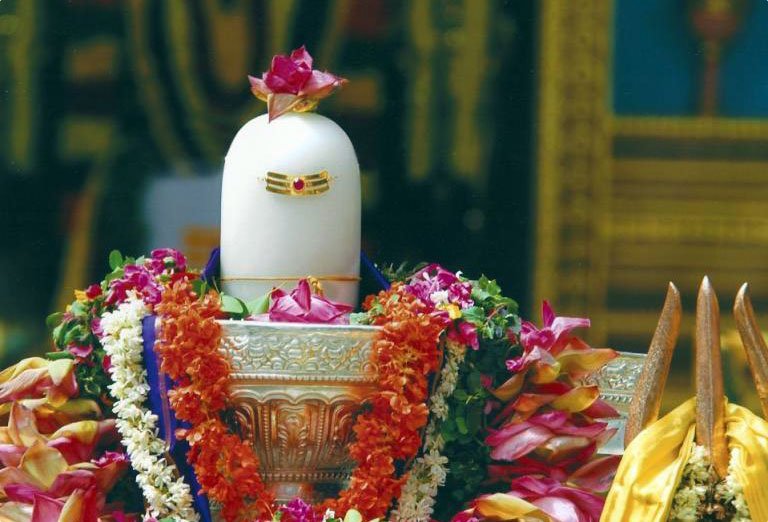The temple bells ring harmoniously like echoes of eternity, calling the heart to become one with the divine. Of all the numerous sacred rituals in Sanatan Dharma, Rudrabhishek Puja stands uniquely elevated in status. This puja to Lord Shiva is not merely a ritual—it is a river of love that purifies the soul, washes away karmic debt, and bestows prosperity, health, and peace upon the devotee.
For those eager to do so but are away from the temple sanctum, the facility of pooja booking online is now only a divine bridge over distance. But let us first go through the step-by-step details of this sacred puja before we discuss how portals such as Utsav are transforming bhakti in the modern era.
Why Rudrabhishek Puja is Important
Rudrabhishek is the ritual of cleansing the Shiva Linga with holy objects while reciting the powerful Vedic mantras, i.e., the Rudram of the Yajurveda. It is a cosmic purification—a cleansing bath for the stone and for the devotee’s heart.
Symbolically, every object of use in the ablishek bears a prayer:
- Milk: for purification and spiritual development
- Honey: for sweetness in relationships
- Ghee: to be healthy and strong
- Sugarcane juice: for prosperity
- Water from holy rivers: to liberate from sins
Since they are rivers that flow into the ocean, all the oblations merge in a single tide of devotion to Mahadev.
Rudrabhishek Auspicious Dates in 2025
According to Drik Panchang, the most auspicious dates to perform Rudrabhishek in 2025 are:
- Mahashivratri: 26 February 2025
- Sawan Mondays: 14 July, 21 July, 28 July, and 4 August 2025
- Shravan Purnima: 10 August 2025
These dates coordinate the worshipper’s prayer with cosmic waves, making the ritual more powerful.
Preparation Before the Puja
It is not a question of ritual objects alone but of mental preparation. Just as one cleans a vessel before one places nectar in it, so the worshipper has to prepare body, mind, and spirit similarly.
Things to collect:
- A Shiva Linga (if performed at home)
- Panchamrit (mixture of milk, honey, sugar, curd, and ghee)
- Filtered water (optimum if Gangajal)
- Bilva leaves, dhatura, and flowers
- Camphor, diya, and incense
- White robes for the priest and the devotee
Mental preparation:
- Fasting or eating sattvic food before the puja
- Purity of thought and speech
- Sankalp asana (sitting with clear intention) prior to commencing the ritual
Step-by-Step Procedure of Rudrabhishek
As a drama unfolds, act by act, the Rudrabhishek Puja also has distinct phases, each filled with its own religious intensity.
Sankalp (Resolution)
The devotee begins sitting before the Shiva Linga, with flowers and water in the right hand, and vows (sankalp). The sankalp consists of personal details—name, gotra, nakshatra—and the purpose of the puja.
Ganesh Vandana
All good work is started by invoking Lord Ganesha. A little offering is made to eliminate obstacles, just as one cleans the road before embarking on a journey.
Kalash Sthapana
A water-filled sacred pot (kalash) with mango leaves and a coconut is kept inside. It symbolises the universe, and water is its source of life.
Invoking Lord Shiva
Priests chant the Rudram and invite Lord Shiva into the Linga. The vibrations of the mantras are said to cleanse the environment and the mind too.
Abhishek (Bathing the Shiva Linga)
This is the climax of the ritual. Each of the liquids is poured individually over the Linga:
- Water (purification)
- Milk (blessings of health)
- Honey (sweetness of life)
- Ghee (energy and strength)
- Curd (prosperity)
- Sugarcane juice (bliss and joy)
- Ultimately, Gangajal (spiritual emancipation)
With every pour, “Om Namah Shivaya” resonates like waves crashing on the shores of the limitless.
Bilva Leaves & Flower Offering
Bilva leaves, being very precious to Lord Shiva, are used with folded hands. This is surrender.
Aarti and Naivedya
Incense, diya, and camphor are lighted, and fruits and sweets are offered thereafter. Puja is succeeded by aarti, the light being passed in a circular manner around the deity as if it is returning the light which He Himself sheds.
Why Devotees Decide to Book Pooja Online
Not all can go to Kashi Vishwanath or Trimbakeshwar to perform Rudrabhishek. Waiting periods, physical constraints, or professional responsibilities are hindrances for some. That is where technology bridges the gap of belief.
- No geographical limitation: Perform the puja in Kashi even while sitting in London.
- True priests: Rituals performed strictly according to shastras.
- Live streaming: Experience the puja online without compromising the sacred atmosphere.
- Prasad delivery: Have holy offerings delivered to your home.
As the Ganga flows from the Himalayas to irrigate every village, pooja booking online brings temple holiness to every door.
Utsav: A Guide on Your Way to Spirituality
In this era of the internet, Utsav has emerged as a gateway between everlasting devotion and contemporary convenience. It enables devotees to conduct pujas such as Rudrabhishek online at holy temples in India.
- Get rituals for auspicious dates from Drik Panchang straight away.
- Rudrabhishek at Jyotirlingas and accept prasad at home.
- Chant mantras with a guide so that you are spiritually engaged, and not just an observer.
Utsav is not about substituting allegiance but about maximising it—making sure that each prayer finds its proper destination.
Festivals Through Which You Can Book Rudrabhishek or Other Pujas
For 2025, a few of the most significant festivals for online puja booking are:
- Makar Sankranti: 14 January
- Mahashivratri: 26 February
- Chaitra Navratri: 30th March to 6th April
- Ram Navami: 6 April
- Raksha Bandhan: 9 August
- Janmashtami: 15th August
- Ganesh Chaturthi: 27 August
- Sharad Navratri: 22 Sep to 2 Oct
- Dussehra: 2 October
- Diwali: 20 October
Each one of these days holds great power when paired with commitment.
Conclusion: Your Spiritual Journey is Just a Click Away
To do the Rudrabhishek Puja is to pen a love letter to Lord Shiva—every splash of milk, every recitation of “Om Namah Shivaya”, a word, every offering, a sentence. And whether in person at a Jyotirlinga or through pooja booking online, most important is the bhava—the attitude behind it. Now, thanks to the efforts of the likes of Utsav, this method of worship has been made accessible to all faiths, regardless of time or space. Download the Utsav App on Play Store or visit their website, and let your prayers cross borders—because when the heart speaks, even distances bow down to devotion. Om Namah Shivaya.

